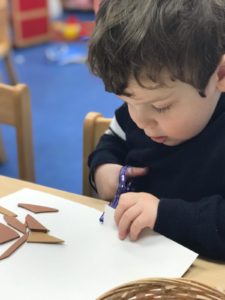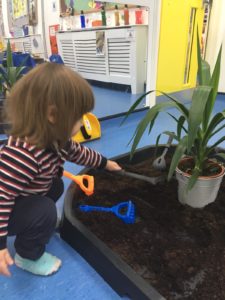Developing and encouraging independence in the early years’ stage is vital for integration into school and of course, for life.
The concept of independence and its importance is included in the national Early Years Foundation Stage guidelines. These state that “every child should learn to be resilient, confident and self-assured.”
Our role as parents and educators in supporting the development of independence is vital for
child development.
Here’s what you can do to encourage it:
- Show confidence in children’s abilities, allow them to do things independently
- Provide guidance and then give them the freedom to make their own decisions
- Encourage children to be aware of risks and be confident to “have a go”
- Needless to say, give children love and respect
As parents, we naturally tend to over-protect our children
Too often we intervene when our children come across challenging situations, ready to provide instant solutions. When children fall, we often lift them up, rather than letting them cope and understand the situation. What if they were to get up by themselves, learning about their physical abilities and taking risks? When children argue over a toy, we tend to intervene, as peacekeepers. When we do this, we rob them of an opportunity to learn to negotiate, stand up for themselves and develop social skills. We end up doing things for our children which they are often capable of doing themselves.
Pause for a moment and ask yourself, what are your children able to do without your support, which currently you are doing for them?
You will be surprised how capable children are, even at a very young age. For example, a 15-month-old child is usually capable of taking off his own trousers and put them in the laundry basket. A 2-year-old child can walk to nursery without being carried in your hands, including walking up the stairs. A 3-year-old child can dress and undress themselves, with a bit of support.
Children will take their own risks if we let them
They will climb a tree with a great sense of achievement. With love and support, we can encourage our children to find their way down safely, by being there for them and guiding them. If we chose to lift them off the tree to safety, we will have missed an opportunity for them to develop independence and learn about risk-taking.
Children are born explorers, curious by nature
A 1964 study found that babies as young as two months old, when presented with different patterns, will show a marked preference for the unfamiliar ones. It is an instinct that we wish to maintain in order to empower the thirst for knowledge and making one’s own choices. With clear boundaries, we should allow children to make choices, express their needs and views.
Independence is not something that young children can gain on their own.
As parents and educators, we have a vital role in helping children gain this skill. Our children do not possess sufficient life experience to develop independence without our support; they need our encouragement, time and love. Independence is the greatest gift we can give our children, one that they will cherish and benefit from their entire life.











